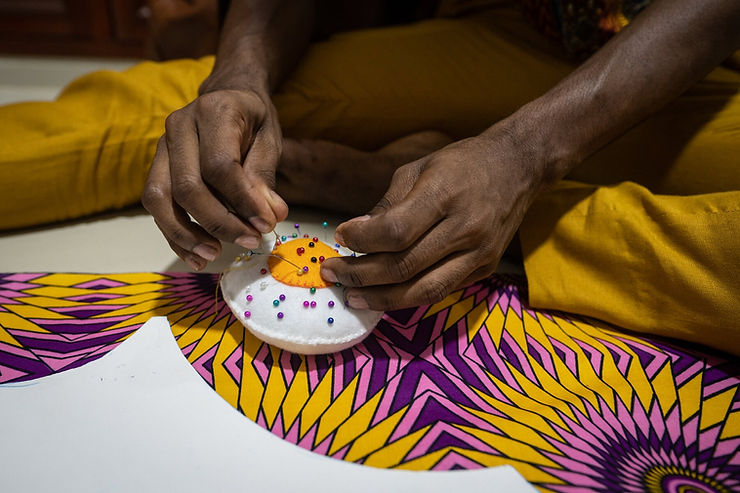By: Chenwei Ren
The first Black vice president of Colombia, Francia Márquez, wears clothing designed by a young designer at the epicenter of the Afro-Colombian fashion explosion.
This year, at a renowned fashion show in the coastal city of Buenaventura, two tall models walked down the boardwalk, one in a red minidress with a fluted top modeled after an open seashell and the other in a blue-and-gold gown fit for a contemporary queen.
For a significant fashion show in Colombia, the fabrics were imported from Africa and the models were Black. Above all of them, the designer stood out: Esteban Sinisterra Paz, a 23-year-old university student without formal design training who is at the center of an Afro-Colombian fashion explosion.
“Decolonization of the human being.” Paz stated as he claimed that this, along with presenting the world with a broad perspective of “the elegance of identity,” is the goal of his work.
Ms. Márquez has made a remarkable rise from extreme poverty to the presidential palace in a country where race and class frequently define a person’s status. She has become the voice of millions of poor, Black, and Indigenous Colombians. She has revolutionized the nation’s political aesthetic in a matter of months, rejecting starched shirts and suits in favor of a distinctively Afro-Colombian look that she refers to as a form of rebellion. She has done this in addition to elevating racism and classism to the forefront of the national conversation.
Afro-Colombians are among the poorest groups in a country where 40% of households make less than $100 per month, a number that has increased since the pandemic. The Pacific Coast is one of the regions where they are most prevalent and has received the least attention from generations of politicians. Officially, Black Colombians make up between 6 to 9 percent of the population. But many say that is an undercount that perpetuates a lack of recognition.
“Colonization tried to erase Black people,” said Lia Samantha Lozano, who began outfitting her hip-hop and reggae band, Voodoo Souljahs, in African fabrics more than a decade ago, positioning her as a pioneer in the movement. In 2014, she was the first Black woman to have a runway show at Colombiamoda, the biggest fashion show in the nation.
As Black celebrities, models, politicians, and activists use clothing as a political tool more frequently, politically oriented Afro-descendant brands have exploded online and in stores throughout Cali, a major center of Afro-Colombian culture. And the Petronio lvarez Festival, an annual Afro-Colombian cultural festival that draws thousands of visitors to Cali, has grown to become the movement’s version of fashion week.











